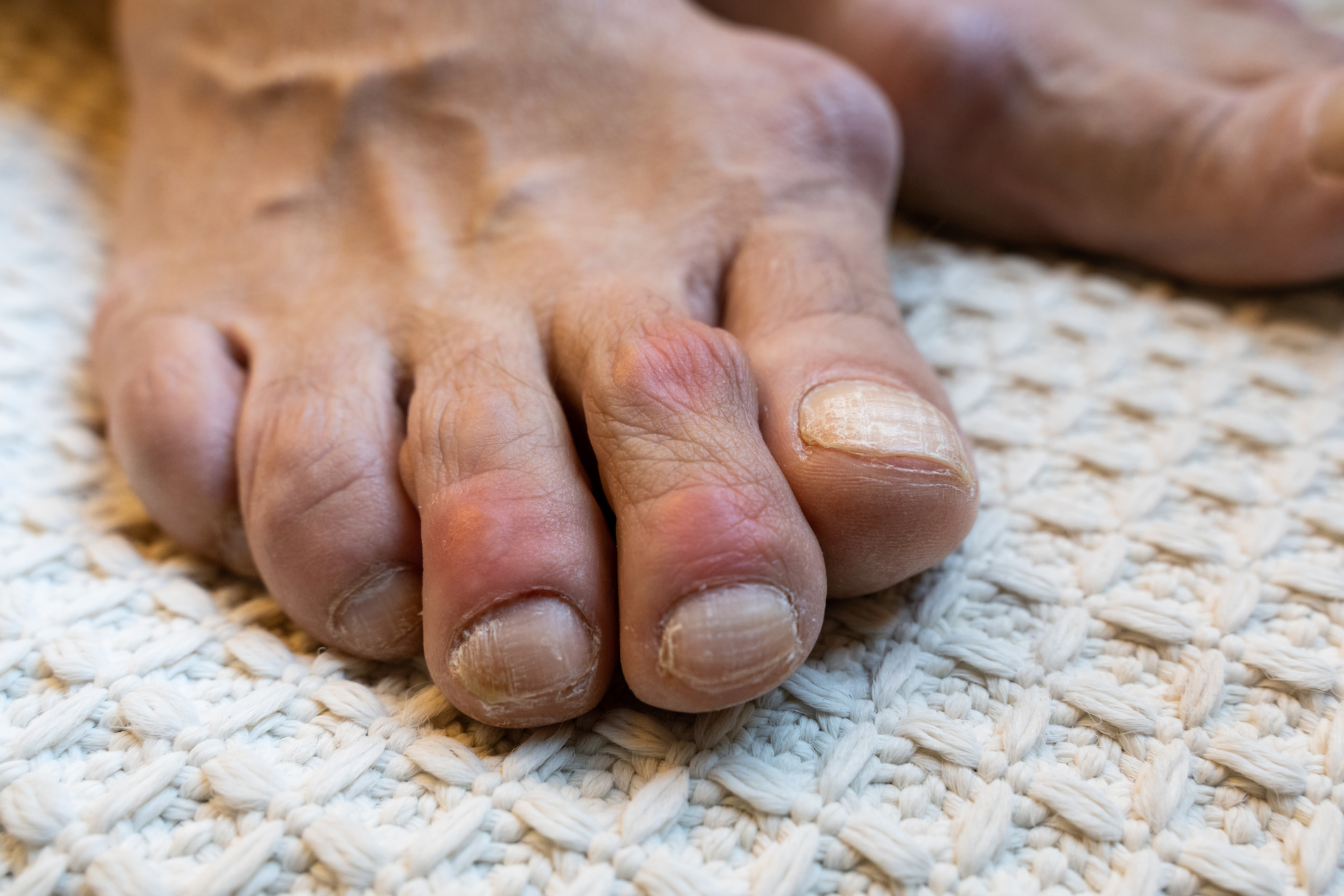
Living with gout requires making certain lifestyle changes to manage symptoms and reduce the frequency and severity of gout attacks. Here are some tips to help you live with gout:
- Medication: Consult a healthcare professional who can prescribe medications to manage gout. Commonly prescribed medications include nonsteroidal anti-inflammatory drugs (NSAIDs), colchicine, and corticosteroids. Take your medication as prescribed to control pain and inflammation during gout attacks.
- Stay hydrated: Drink plenty of water throughout the day to help flush out uric acid from your body. Aim for at least 8-10 cups of water per day. Avoid sugary drinks and alcohol as they can worsen gout symptoms.
- Follow a gout-friendly diet: Limit or avoid foods high in purines, as they can increase uric acid levels. Examples of purine-rich foods include red meat, organ meats (liver, kidney), seafood (anchovies, sardines, mussels), and certain vegetables (cauliflower, spinach, asparagus). Instead, opt for low-purine foods such as low-fat dairy products, whole grains, fruits, and vegetables.
- Maintain a healthy weight: Excess weight can contribute to higher uric acid levels and increase the risk of gout attacks. Aim for a healthy weight range through regular exercise and a balanced diet. Avoid crash diets or fasting, as they can temporarily raise uric acid levels.
- Exercise regularly: Engage in moderate exercise, such as walking, swimming, or cycling, to help maintain a healthy weight and improve overall joint health. However, avoid intense activities that may put excessive strain on the joints during gout attacks.
- Protect your joints: Take care of your joints by avoiding excessive stress or trauma. Use supportive footwear, and consider using braces or supports for affected joints. Protecting your joints can help prevent additional pain and inflammation.
- Limit alcohol consumption: Alcohol, especially beer, can increase uric acid production and contribute to gout attacks. If you choose to drink, do so in moderation. Men should aim for a maximum of two alcoholic beverages per day, while women should limit it to one.
- Manage stress: Stress can trigger gout attacks or exacerbate symptoms. Find healthy ways to manage stress, such as practicing relaxation techniques, engaging in hobbies, or seeking support from friends and family.
- Regular check-ups: Visit your healthcare professional regularly to monitor your uric acid levels and overall health. They can adjust your treatment plan if necessary and provide guidance on managing gout effectively.
Remember, it’s essential to consult with a healthcare professional for personalized advice and treatment options tailored to your specific needs.
See More on Video

The End Of GOUT Program™ By Shelly Manning The program, End of Gout, provides a diet set up to handle your gout. It is a therapy regimen for gout sufferers. It incorporates the most efficient techniques and approaches to be implemented in your daily life to heal and control gout through the source.